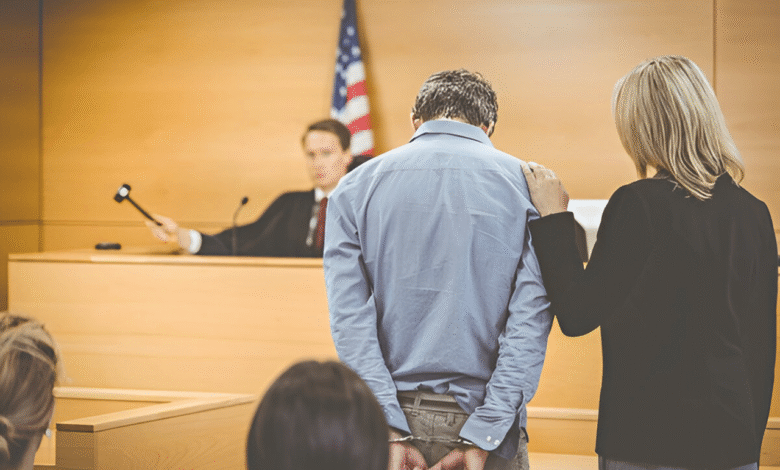How the Criminal Justice System Works in the UK: A Legal Guide
The UK criminal justice system explained police powers, court process, sentencing & rights. Your complete legal guide to British justice.

The UK criminal justice system is a carefully structured framework designed to maintain law and order while protecting the rights of both victims and defendants. Governed by legislation and supported by key institutions such as the police, courts, and prison services, this system ensures that crimes are investigated fairly, prosecuted justly, and punished appropriately. Understanding how it operates is essential for anyone involved in legal proceedings, whether as a defendant, victim, or witness.
This guide explores the key stages of the UK Criminal Justice System, from initial police investigations to sentencing and rehabilitation. We will examine the roles of major legal bodies, including the Crown Prosecution Service (CPS), the Magistrates’ and Crown Courts, and the prison and probation services, while also highlighting the rights of individuals at each stage. By breaking down this complex process, we aim to provide clarity on how Criminal Justice System is delivered in the UK.
How the Criminal Justice System Works in the UK
The Role of the Police in Criminal Investigations
The police play a pivotal role in the UK criminal justice system by investigating crimes, gathering evidence, and making arrests. When a crime is reported, officers assess the situation, collect witness statements, and secure forensic evidence. If sufficient evidence exists, they may arrest a suspect under the Police and Criminal Evidence Act (PACE) 1984, which outlines their powers and safeguards suspects’ rights. During an arrest, individuals must be informed of their rights, including the right to remain silent and the right to legal representation. The police can detain a suspect for up to 24 hours (extendable to 36 hours for serious offences) before charging or releasing them. If charged, the case proceeds to the Crown Prosecution Service (CPS) for further review.
The Crown Prosecution Service (CPS) and Decision to Prosecute
The Crown Prosecution Service (CPS) is responsible for deciding whether to prosecute a case. Prosecutors review evidence provided by the police and apply the Full Code Test, which assesses whether there is enough evidence for a realistic chance of conviction and whether prosecution is in the public interest. If the CPS approves charges, the accused will face court proceedings. Minor offences may be resolved through summary trials in Magistrates’ Courts, while serious crimes like murder or rape are handled in the Crown Court. The CPS also ensures that cases comply with legal standards and that victims and witnesses are treated fairly throughout the process.
The Court System: Magistrates’ Court vs. Crown Court
The UK court system is divided into Magistrates’ Courts and the Crown Court, each handling different types of cases. Magistrates’ Courts deal with less serious offences, such as traffic violations and minor assaults, and are presided over by lay magistrates or district judges. Defendants may plead guilty or not guilty, with sentencing often occurring immediately if convicted. For indictable offences (serious crimes like robbery or manslaughter), cases are sent to the Crown Court, where trials are conducted before a judge and jury. The jury determines guilt based on evidence, while the judge oversees legal procedures and imposes sentences if the defendant is found guilty. Appeals can be made to higher courts if there are grounds to challenge the verdict.
The Trial Process: Evidence, Defence, and Verdict
A criminal trial in the UK follows strict legal procedures to ensure fairness. The prosecution presents evidence first, calling witnesses and submitting forensic reports. The defence then cross-examines witnesses and may present its own evidence to challenge the prosecution’s case. The burden of proof lies with the prosecution, which must prove the defendant’s guilt beyond reasonable doubt. If the jury (or magistrate) is convinced, a guilty verdict is delivered. If not, the defendant is acquitted. Judges consider sentencing guidelines to ensure punishments are proportionate to the crime.
Sentencing and Penalties in the UK Justice System
Upon conviction, judges determine an appropriate sentence based on factors such as the severity of the crime, the defendant’s criminal history, and Mitigating factor. Sentences range from fines and community service to imprisonment and life sentences for the most serious offences. The UK also emphasises rehabilitation, with programs aimed at reducing reoffending. Probation services supervise offenders released on licence, ensuring they comply with court orders. In some cases, restorative Criminal Justice System allow offenders to make amends to victims, fostering accountability and reconciliation.
Appeals and Post-Conviction Review
Defendants have the right to appeal a conviction or sentence if they believe there was a legal error or unfair treatment. Appeals are heard in higher courts, such as the Court of Appeal or the Supreme Court, depending on the case’s complexity. The Criminal Cases Review Commission (CCRC) can also review convictions if new evidence emerges, potentially referring cases back to the courts. This ensures that miscarriages of Criminal Justice System are rectified, maintaining public confidence in the legal system.
The Prison System and Rehabilitation
The UK prison system manages offenders serving custodial sentences, focusing on security, discipline, and rehabilitation. Prisons are categorised by security level, with high-risk offenders held in Category A facilities. Rehabilitation programs address issues like substance abuse and lack of education, helping inmates reintegrate into society. However, overcrowding and funding challenges have raised concerns about the effectiveness of the prison system. Alternatives to custody, such as electronic tagging and probation, are increasingly used for non-violent offenders to reduce prison populations.
Victims’ Rights and Support Services
Victims of crime in the UK have specific rights, including access to victim support organisations, updates on their case, and protection during trials. The Victims’ Code ensures they are treated with dignity and receive compensation where applicable. Special measures, such as giving evidence via video link, are available for vulnerable witnesses. The justice system aims to balance the rights of defendants with the needs of victims, ensuring a fair process for all parties.
Read More: Facing Charges in South Australia? How to Protect Your Rights
Conclusion
The UK criminal justice system represents a carefully balanced framework designed to deliver Criminal Justice System while protecting the rights of all parties involved. From initial police investigations through to prosecution, trial, and sentencing, each stage follows established legal principles to ensure fairness and accountability. While the system faces challenges such as court backlogs and prison overcrowding, ongoing reforms aim to improve efficiency and maintain public confidence in the rule of law.
Ultimately, understanding how the UK criminal justice system operates provides valuable insight for victims, defendants, and legal professionals alike. By combining punishment with rehabilitation, the system strives not only to address criminal behavior but also to reduce reoffending and create safer communities. As society evolves, so too must the Criminal Justice System adapting to new challenges while remaining committed to its fundamental principles of fairness, transparency, and Criminal Justice System for all.
FAQs
What is the first step in the UK Criminal Justice System?
The process begins with a police investigation, where officers gather evidence and may make an arrest if there are reasonable grounds.
How does the Crown Prosecution Service decide to charge someone?
The CPS applies a two-part test examining whether there’s enough evidence for conviction and if prosecution serves the public interest.
What’s the difference between Magistrates’ Court and Crown Court?
Magistrates’ Courts handle minor offenses with shorter sentences, while Crown Courts deal with serious crimes through jury trials.
What rights do defendants have in UK courts?
Defendants have rights including legal representation, presumption of innocence, and the right to remain silent during proceedings.
How does sentencing work in the UK Justice System ?
Judges follow sentencing guidelines considering crime severity, defendant’s history, and mitigating factors, ranging from fines to life imprisonment.











